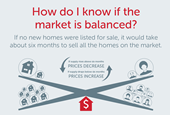
Key insights:
- Buyers who are hoping to secure a mortgage loan can determine their buying power by looking at a few different financial factors and researching common loan types and terms.
- Lenders will look at how a borrower’s monthly debt obligations compare to their monthly income to determine if they can responsibly take on a mortgage payment.
- Borrowers can explore different down payment assistance options if they’d like to boost what they put down at closing.
- While a large down payment can be advantageous, there are varying loan types that appeal to buyers with different financial backgrounds — including those who have less to put down at closing.
As inventory tightens and multiple offers become the norm, many buyers are left wondering what kind of home they can responsibly afford. The answer to that depends on a series of financial variables and loan options that you can take into account as you begin the process of searching for, and buying, a home.
Here are insights you can use as you determine what you can truly afford when buying a home.
Remember, every buyer is different, so it’s important that you work with a professional who understands your background. Your REALTOR® can recommend a mortgage loan officer or financial advisor who can provide a personalized, professional assessment of your finances.
Your debt-to-income-ratio
After you apply for a loan, your lender will review your financials to determine how much of your monthly income is spent (or will be spent) paying off accrued debt. The calculation of this number is called your debt-to-income ratio. Lenders calculate your debt-to-income ratio to ensure that buying a house will not be too much of a financial burden over time.
Learn how to calculate your debt-to-income ratio.
Down payment gifts and assistance programs
A larger down payment can increase your buying power and help to provide favorable loan terms. But while many buyers are able to reliably pay a monthly mortgage payment, they may have a harder time coming up with a significant down payment at the time of closing.
To boost your buying power without a large down payment, you can consider two common assistance paths.
- If you have generous friends or relatives who want to help you get a leg up on your home purchase, you can use a mortgage gift fund to fund your down payment.
- Depending on your income, debt, credit score and a few other factors, you may be eligible for down payment assistance programs in Minnesota or Wisconsin.
Loan types: Limits, terms and more
You may also find it helpful to research loan types and determine which will be the most advantageous for you. Some loans offer more favorable terms to those with a higher down payment and stronger financial history, while other “helper” loans are available to buyers who can’t put as much down at closing.
There are three main ways that major loan terms vary:
- Down payment minimum: Some loans can be secured with as little as 3 percent down, while others require more at closing.
- Loan limits: Some loan types have a ceiling, meaning that the loan cannot exceed a specific amount.
- Mortgage insurance: If a borrower puts less down at closing, their lender may require them to pay mortgage insurance.
Learn about the down payment minimums, loan limits and other terms of:
Mortgage interest rates
The mortgage interest rate you qualify for will also greatly affect affordability. The lower your interest rate, the more home you can afford because you will pay less interest per month and over the life of the loan.
Here’s an example: If you are approved for a 4 percent interest rate on a 30-year fixed-rate loan for $250,000, your monthly mortgage payment would be about $1,190 per month.
If your interest rate rose to 5 percent, but all other factors remained identical, your monthly mortgage payment would increase to about $1,340 per month. That means that by inflating the interest rate by just 1 percent, you would end up paying on average $1,800 more in interest annually — and $54,000 over the life of the loan.
When talking with your lender as you apply for a loan, you can ask them if there are any factors in your control that are affecting your interest rate.
The hottest trend: Responsible homeownership
By understanding what factors affect your buying power, you are one step closer to becoming a responsible homeowner.
If you’re ready to move beyond affordability research to see what you can truly afford, consider getting pre-approved by a lender. It’s a no-obligation process that can illuminate your buying power and put you on a fast, successful path to homeownership.
For one-to-one help getting started on the homebuying process, you can also contact Edina Realty customer care seven days a week.
For even more tips on buying a home or getting a mortgage, follow #BuyerInsights on your favorite social media channels, including Facebook, Instagram, YouTube and Twitter.








